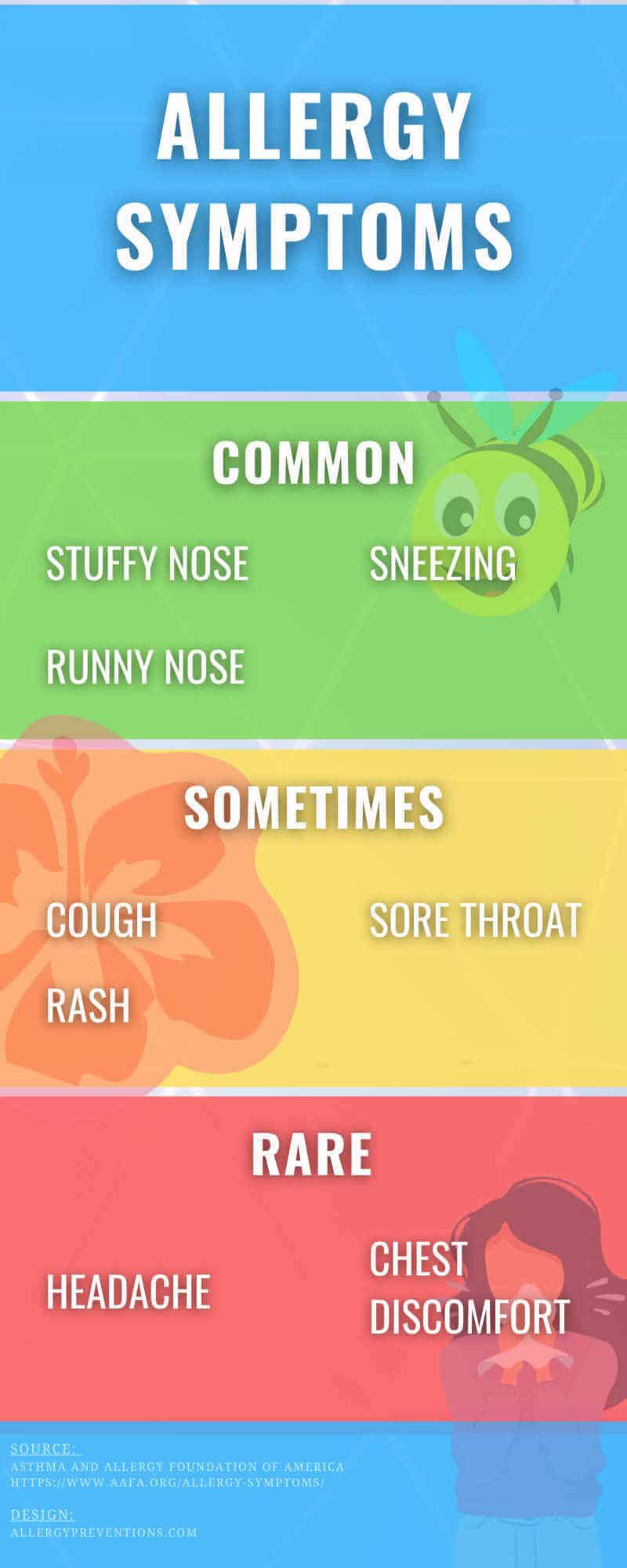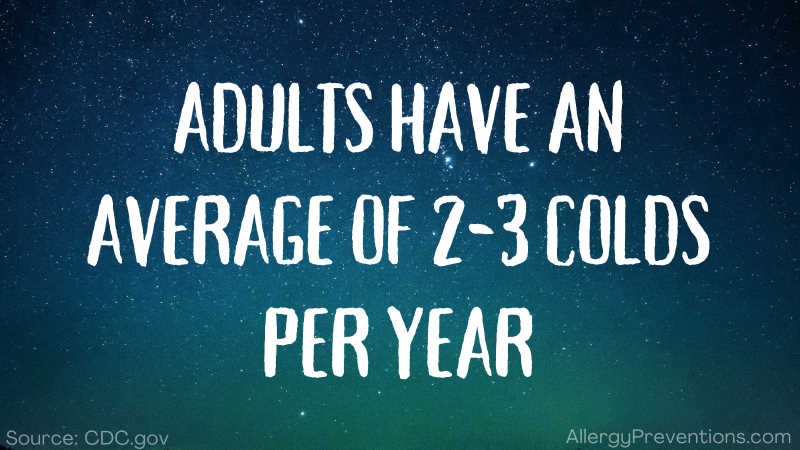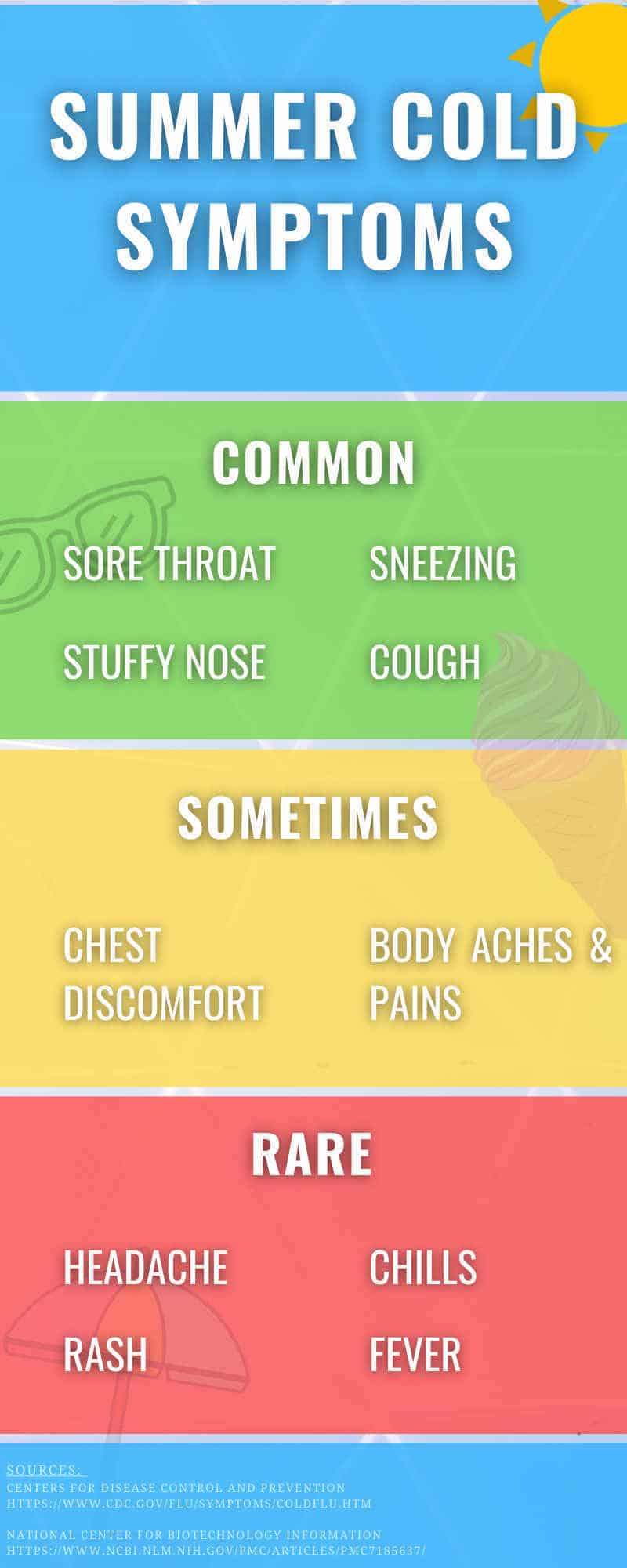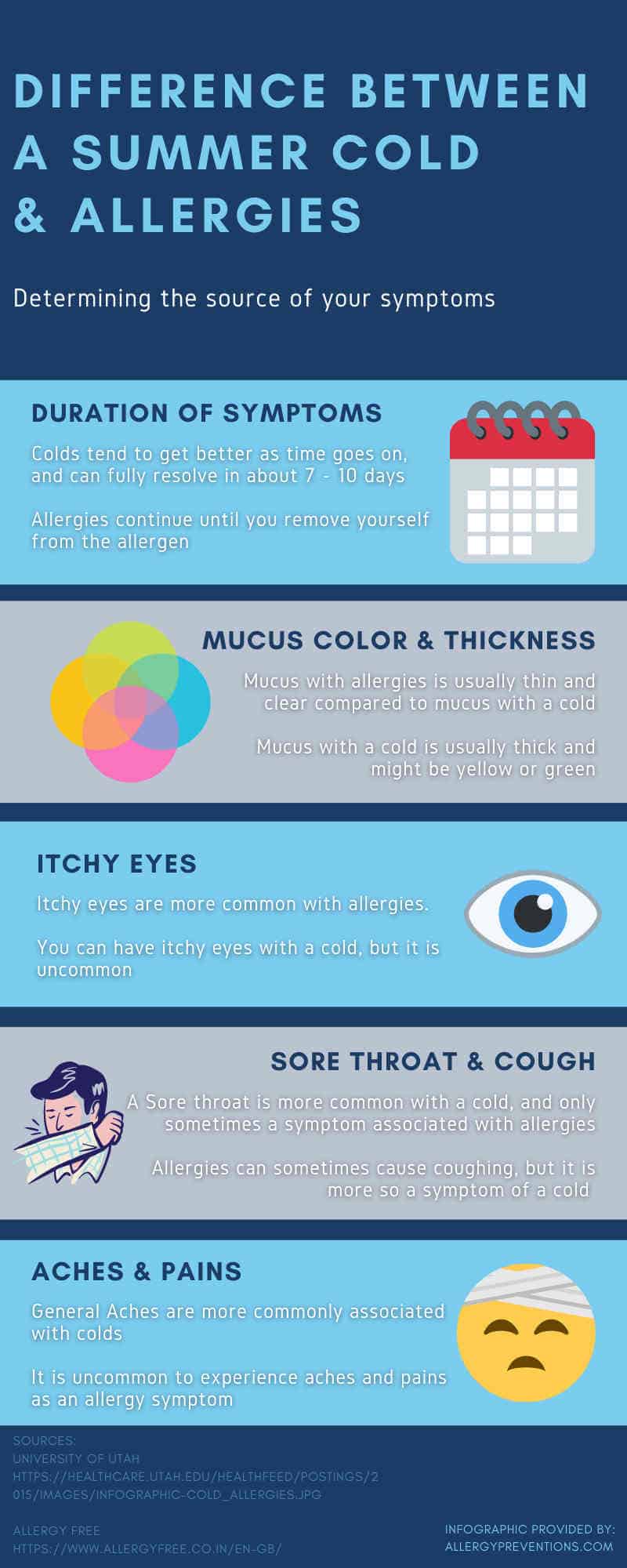Is it a summer cold or allergies? No one wants to suffer from a summer cold or allergies, as both are unwelcome visitors in our lives. The symptoms of both conditions hang out on a blurry line, which doesn’t make this any easier. I have the information you need to decide if you are a victim of a cold, allergies, or both.

As an Amazon Associate, I earn from qualifying purchases.
Table of Contents
What Are Summer Allergies?

Summer allergies occur when your immune system responds to something that doesn’t typically affect the majority of people during the summer months. Individuals with allergies often have heightened sensitivity to multiple substances. In short, your immune system is sounding off an irrational alarm to fight off an “invader”.
Allergy Symptoms

Infographic Information Sources: AAFA, NCBI.
Allergy symptoms come in a variety of forms. Listed are the symptoms that you would likely associate with allergies. Please note that this list is not all-inclusive.
Commonly Occurs
- Runny Nose
- Sneezing
- Stuffy Nose
Uncommon or “Sometimes” Occurs
Rarely Occurs
- Chest Discomfort (unless suffering from allergic asthma)
- Headache
Never Occurs
- Aches
- Chills
- Fever
Allergy Symptoms Onset and Duration
Allergy symptom onset and duration are important to know when investigating if your symptoms are caused by a cold or allergies.
Onset
Allergy symptom onset is almost instant; you are exposed to the allergen and your body reacts.
Duration
Allergy symptom duration is based on how long you are exposed to what you are allergic to. If you suffer from pollen allergies, you will probably experience discomfort mostly in the spring or fall seasons.
Once you remove yourself from the allergen, your symptoms should begin improving.
What is A Summer Cold?

A summer cold is quite literally a cold that you catch in the summer. There is no difference between a summer cold, winter cold, spring cold, or fall cold, besides the time of year you become ill.
A cold, in general, is caused by the Rhinovirus, affecting each adult 2-3 times a year on average. (and children even more). That means U.S. adults experience an accumulative of 627 million colds annually.
Even though a common cold is…common, it doesn’t make it any more pleasant to experience.
Summer Cold Symptoms

Infographic Information Sources: CDC.gov, NCBI
Commonly Occurs
- Sneezing
- Sore Throat
- Stuffy Nose
Uncommon or “Sometimes” Occurs
- Aches
- Chest discomfort
Rarely Occurs
- Chills
- Fever
- Headache
- Rash
Never Occurs
With my research, it seems that just about any symptom is possible with a cold.
Summer Cold Onset and Duration
The onset of a cold can be gradual over a few days, and the symptoms should resolve within a few weeks.
Onset
The typical onset of a cold starts with a gradual increase of symptoms and severity over 1-3 days. The symptoms experienced vary from person to person and you may only experience 1 or 2 (if you are lucky).
Duration
The duration of a cold is less than two weeks, but this can vary depending on your current health and pre-existing conditions.
Difference Between A Summer Cold and Allergies

Infographic Information Sources: University of Utah, Allergy Free
We have learned that both summer colds and allergies tend to give you a runny/stuffy nose and sneezing. Now that those are out of the way, there are a few (somewhat) distinct differences to look for when determining if you are experiencing a cold or allergies.
Duration of Symptoms
- Colds tend to get better as time goes on, and can fully resolve in about 7 – 10 days
- Allergies continue until you remove yourself from the allergen
Allergy Mucus vs Cold Mucus
There are a few distinguishing traits when comparing mucus produced from a cold versus mucus produced by allergies. The main differences are:
- Allergy mucus is usually thin and clear compared to mucus with a cold
- Mucus with a cold is usually thick and might be yellow or green.
Itchy Eyes
Itchy eyes are more common with allergies. You can have itchy eyes with a cold, but it is uncommon.
Sore Throat
A Sore throat is more common with a cold, and only sometimes a symptom associated with allergies.
General Aches and Pains
General Aches are more commonly associated with colds, and it is uncommon to experience aches and pains as an allergy symptom.
Cough
Allergies can sometimes cause coughing, but it is more so a symptom of a cold. Colds and allergies can produce similar symptoms, but I hope this information helped you narrow it down to one culprit.
Treatment Options

Whether you are suffering from a cold or allergies, there are treatment options for both conditions. Remember to check with your doctor for the best treatment option for you.
Allergy Treatment Options
The best treatment option for summer allergies is avoidance or removing yourself from the allergen, but that isn’t always feasible. Here are a few allergy treatment options to ease your symptoms:
- Antihistamines
- Decongestants
- HEPA filter
- Nasal Spray
- Netty Pot (Natural nasal wash)
Summer Cold Treatment Options
There is no cure for colds, which means we are left with just managing our symptoms. These treatment options should aid in your recovery, and get you feeling better:
- Decongestants
- Hydration
- Pain relievers
- Rest
Allergy and/or Summer Cold Treatment Options
If you believe you are suffering from allergies AND a cold, here are the top recommendations:
- Antihistamines
- Decongestants
- HEPA filter (removes allergens and airborne bacteria/viruses)
- Hydration
- Netty Pot
- Rest
Final Thoughts
I hope you were able to use this information in deciding if this is a summer cold or allergies you are experiencing, as well as finding treatment options that work for you.
Thank you for stopping by, and I wish you a speedy recovery! Do you know the difference between a cold, allergies, and the flu?
